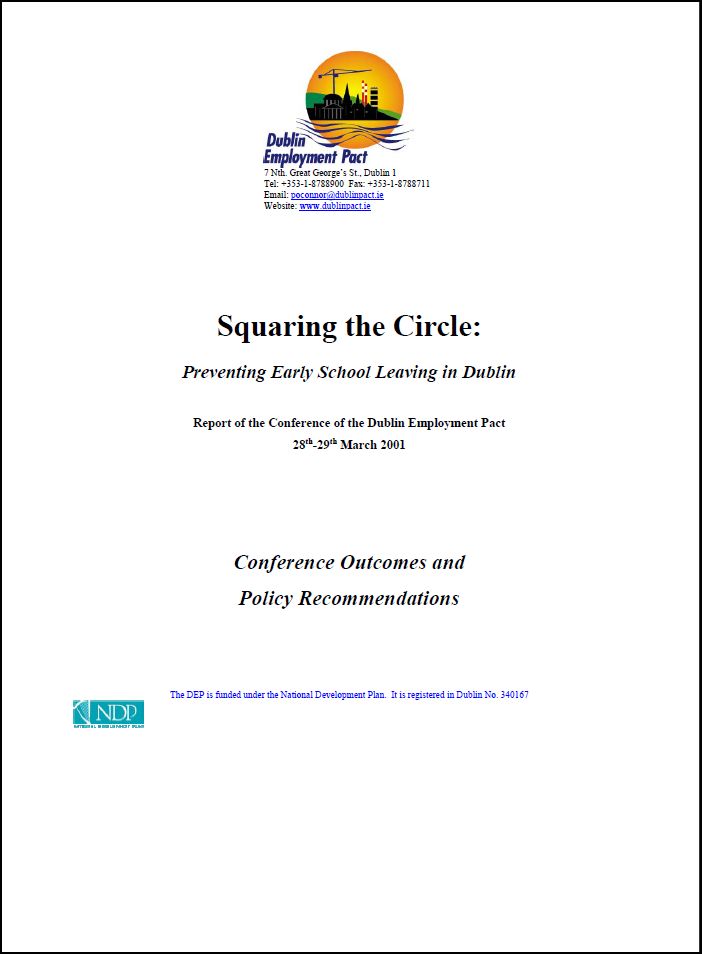Database of Publications


Squaring the Circle
Ted Fleming and Mark Murphy
Ted Fleming and Mark Murphy
Ireland 2000
An analysis of programmes in Dublin Schools
English
English
The aim of the study is to examine the
nature and structures of preventative education measures in Dublin in order to make recommendations regarding models of best practice. The findings are based on the available documentation produced by Dublin-based preventative education measures. Evaluations, interim reports, proposals, progress reports to funders, and other useful written material were gathered for the purpose of this review. Section One outlines the policy context of early school-leaving, preventative education and educational disadvantage. Section Two outlines the different types of preventative education measures currently being implemented in Dublin. Section Three summarises the survey of reports and evaluations of these measures and outlines a number of elements that have been identified in the literature as contributing to a model for best practice. The Conclusions and Recommendations Section provides a summary of the report, and sets out recommendations for the development of models of best practice in early school-leaving and preventative education programmes
This is a comprehensive overview of the issue of early school leaving in Dublin. The researchers introduce the concept of the overall ‘capital context’ of early school-leaving, involving personal, social, cultural and economic factors. Each type of capital plays a role in deciding whether or not a child stays on at school. They stress that all of these capital elements must be included in any interventionist programme and to omit any one of them fragments and reduces the effectiveness of the response
Ann Caulfield
Mayo Education Centre
Researcher
Login Area

15 November 2012
Stay@School at the Future of Education Conference
The Stay@School projet will be presented at the third edition of the “Future of Education” international conference, held in Florence, Italy, on 13 - 14 June 2013. Over 250 participants from all over the world will attend the conference. The conference participants belong to the sectors of higher education, school education, vocational education and training as well as adult education, therefore representing all of the target groups of the Stay@School project.

School Inclusion - Copyright 2008 - This project has been funded with support from the European Commission